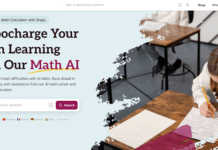
Learning knows no bounds. Continuous updates in technology, skills, and strategies are crucial for navigating both professional and personal spheres.g knows no bounds. Lifelong learning, the continuous acquisition of knowledge and skills throughout life, has emerged as a critical mindset for success. Integrating lifelong learning principles into test preparation strategies can unlock a world of opportunities.
The illiterate of the 21st century will not be those who cannot read and write, but those who cannot learn, unlearn, and relearn.
The Role of Life Skills in Academic and Professional Success
Beyond academic knowledge, life skills such as critical thinking, creativity, negotiation, and problem-solving are essential for both academic performance and professional competency. These transferable skills extend beyond specific subject matter, empowering individuals to navigate complex challenges.
You can attempt the GIA test to uncover and showcase an individual’s cognitive abilities and overall intellectual potential. The GIA positions itself as a tool for assessing and revealing an individual’s general intelligence and mental capabilities.
Cultivating Critical Thinking for Lifelong Learning
Critical thinking is a cornerstone of lifelong learning, equipping individuals with the ability to analyze information, solve complex problems, and make informed decisions. This skill transcends academic learning, extending into everyday life and professional environments.
Cultivating critical thinking begins with encouraging curiosity and questioning, teaching learners to challenge assumptions and consider multiple perspectives. In the context of test preparation, it enhances the ability to comprehend and dissect exam questions, not just memorize answers. Over time, critical thinking fosters independence in learning, making individuals adept at self-education and adapting to new challenges with analytical and open minds.
The Role of Emotional Intelligence in Test Performance
Emotional Intelligence (EI) plays a significant role in test performance by managing stress, anxiety, and motivation. EI involves understanding and managing one’s emotions and empathizing with others, skills that are crucial during high-stakes testing scenarios. Individuals with high EI are better at regulating their emotions, leading to improved concentration and focus.
They can also recognize when they need a break, how to motivate themselves and employ positive self-talk, reducing test anxiety and enhancing performance. Furthermore, EI contributes to resilience, helping learners bounce back from setbacks or poor grades with a constructive outlook on future improvements.
Time Management: Balancing Study and Life Skills Development
Effective time management is essential for balancing study and the development of life skills. It involves prioritizing tasks, setting realistic goals, and creating a study schedule that accommodates both academic obligations and personal development activities.
Mastering time management enables learners to allocate sufficient time for test preparation while also engaging in activities fostering life skills such as teamwork, leadership, and emotional intelligence. This balance is crucial for holistic development, ensuring that learners are not only academically proficient but also well-rounded individuals ready to face the multifaceted challenges of the real world.
The Impact of Communication Skills on Collaborative Learning
Communication skills are vital for the success of collaborative learning, an approach that combines the efforts of students working together to achieve a common goal. Effective communication fosters a productive learning environment where ideas are freely exchanged, and diverse perspectives are valued.
It entails both verbal and non-verbal communication, including listening, presenting ideas clearly, and providing constructive feedback. In the context of test preparation, collaborative learning enhanced by good communication can lead to deeper understanding and retention of material, as students explain concepts to each other, identify gaps in their knowledge, and develop critical thinking skills.
Nurturing Soft Skills for Lifelong Learning
While subject-specific knowledge is essential, soft skills play a pivotal role in lifelong learning and career advancement. Adaptability, collaboration, and leadership are among the most sought-after soft skills in today’s dynamic workforce.
Soft skills like adaptability, collaboration, and leadership are crucial in lifelong learning and career advancement. These skills enable individuals to navigate change, work effectively with others, and take on leadership roles, all of which are critical for continuous growth and professional success.
Practical advice on developing soft skills alongside academic knowledge is essential for holistic skill development Strategies such as participating in group projects, seeking leadership opportunities, and embracing new challenges can foster these valuable soft skills while complementing your academic pursuits.
| Hard Skills | Soft Skills |
| Technical knowledge | Interpersonal abilities |
| Subject-specific expertise | Communication and Collaboration |
| Quantifiable and measurable | Often intangible and subjective |
| Acquired through formal training | Developed through experience and practice |
Comparison: Hard Skills vs. Soft Skills
A well-rounded skill set requires both hard and soft skills. Striking a balance between academic knowledge and soft skill development is key to achieving lifelong learning and career success.
Technology and Lifelong Learning
In the digital age, technology has become an indispensable tool for facilitating lifelong learning and skill acquisition. Online platforms and resources offer a wealth of opportunities for continuous education, making learning accessible and flexible.
Online courses, webinars, and educational apps provide convenient access to knowledge, allowing individuals to upskill and reskill at their own pace. Additionally, *game-based learning and experiential training leverage interactive and immersive approaches, enhancing engagement and knowledge retention.
Embracing technology as a learning aid allows individuals to stay ahead of the curve, adapt to changing industry demands, and continuously expand their skill sets.
Personal Development and Career Advancement
Lifelong learning is not only essential for academic success but also plays a crucial role in personal development and career advancement. Continuous learning and skill acquisition can open doors to new opportunities, promotions, and career transitions.
Moreover, building a personal brand and nurturing a professional network are invaluable strategies for lifelong learning. Sharing your expertise, engaging with industry leaders, and collaborating with like-minded individuals can foster personal growth and expand your knowledge base.
By adopting a lifelong learning mindset, you position yourself as an adaptable and valuable asset in the ever-evolving job market, increasing your competitiveness and long-term career prospects.
FAQs
- How can I balance test preparation with acquiring life skills?
Effective time management and prioritization are key. Set realistic goals and allocate dedicated time slots for both test preparation and life skill development activities. Leverage online resources and seek out opportunities that combine academic learning with practical skill application, such as group projects or extracurricular activities.
- Which life skills are most important for academic success?
While all life skills contribute to holistic development, critical thinking, problem-solving, and time management are particularly crucial for academic success. These skills enable you to analyze information, tackle complex challenges, and effectively manage your workload and deadlines.
- How can technology be leveraged for both test preparation and lifelong learning?
Technology offers a wealth of resources for test preparation and lifelong learning:
– Online practice tests and quizzes
– Educational apps and gamified learning platforms
– Virtual study groups and tutoring sessions
– Massive Open Online Courses (MOOCs)
– Digital flashcards and note-taking apps
Embrace these technological tools to enhance your learning experience and stay ahead in both test preparation and continuous skill development.
Conclusion
In the ever-changing landscape of education and career, integrating lifelong learning principles with test preparation is paramount. By adopting a growth mindset, cultivating life skills, and leveraging effective study strategies, you can unlock your full potential and achieve academic and professional success.
Remember, learning is a lifelong journey, and every step you take toward acquiring knowledge and skills brings you closer to your goals. Embrace the challenges, stay curious, and never stop learning.
**Call to Action:** Start your lifelong learning journey today! Explore online resources, seek out opportunities for skill development, and continuously push the boundaries of your knowledge. The path to success starts with a commitment to continuous growth and a willingness to adapt. Take the first step and unlock a world of possibilities by starting your lifelong learning journey today!



